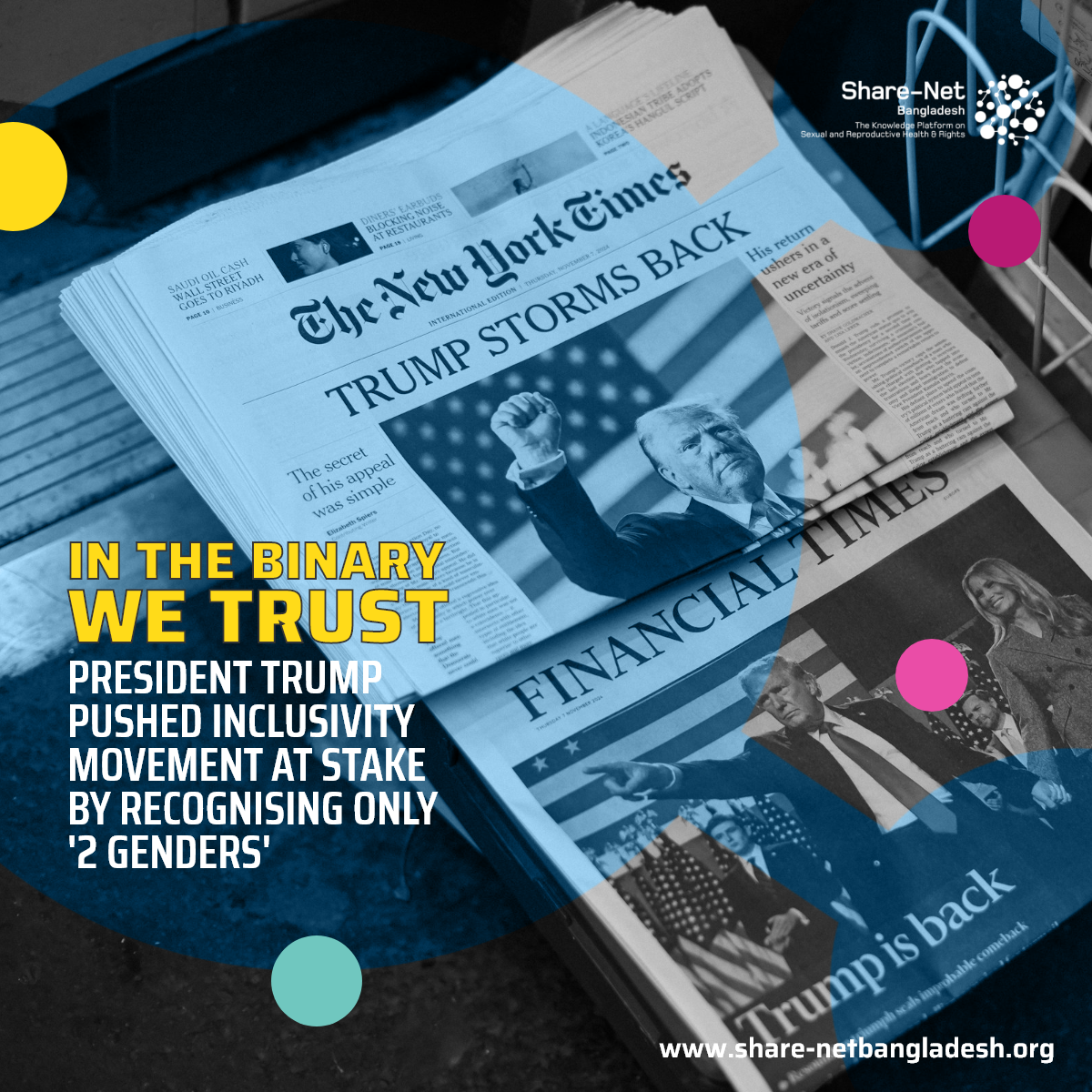In The Binary We Trust: Donald Trump Pushed Inclusivity Movement At Stake By Recognising Only ‘2 Genders’
When on January 15, 2025, the newly re-elected U.S. President Donald Trump unveiled executive orders defining biological sex strictly as male or female, we were not completely surprised, because we saw this one coming from miles away.
He also claimed that his move would “restore biological truth” and combat what he termed the “extremism of gender ideology.” Announced on Martin Luther King Jr. Day as part of his “restoring sanity” agenda, Trump also dismantled federal diversity, equity, and inclusion (DEI) programs, sparking global conversations about the future of inclusivity and human rights.
While these orders primarily target federal policies, their broader implications for LGBTQ+ individuals, particularly transgender and non-binary communities, have drawn sharp criticism. Advocates fear this policy shift undermines years of progress toward sexual and reproductive health and rights (SRHR), equality, and inclusion.
By recognising only two genders, Trump’s executive orders disregard the lived realities of millions of people who identify outside the binary. “This feels like ink thrown over my existence,” said Siddi, a 33-year-old transgender woman. Such sentiments highlight the deep personal and societal impact of policies that deny identity recognition.
For SRHR advocates, gender identity is a cornerstone of comprehensive human rights. Defining sex strictly in binary terms erodes access to critical healthcare services, including gender-affirming care, mental health support, and inclusive reproductive healthcare. These policies could marginalise vulnerable populations, making it harder for transgender and non-binary individuals to access employment, housing, and even basic healthcare, exacerbating existing inequities.
Juviraj Anchil, a 26-year-old human rights advocate, described the move as “regressive,” adding that it could signal further rollbacks on issues like marriage equality and non-discrimination protections. “History will not judge this decision kindly,” they said.
While the executive orders are U.S.-centric, their ripple effects could influence global SRHR narratives. As the United States has historically been a leader in human rights advocacy, its policy shifts often set precedents. By narrowing the scope of gender recognition, these orders could embolden other governments to adopt similarly exclusionary policies, jeopardising the global fight for sexual health and reproductive rights.
The World Health Organization (WHO) and UN agencies emphasise the importance of gender inclusivity in achieving equitable health outcomes. Policies that exclude or stigmatise non-binary and transgender individuals undermine these goals, particularly in regions like South Asia, where SRHR challenges already persist.
Despite the setback, advocates remain hopeful. Rights-based organisations, healthcare providers, and human rights groups worldwide continue to push back against regressive policies. “He can set the U.S. back by a decade, but he can’t erase people who exist outside the binary,” said a journalist, reflecting the resilience of marginalised communities.
Activists urge governments, particularly in South Asia, to uphold commitments to inclusive SRHR policies. By investing in education, healthcare, and legal protections, nations can champion gender equity and ensure no one is left behind.
While policies may change, the fight for recognition, equity, and human rights endures. Trump’s executive order highlights the fragile progress of gender inclusivity in SRHR discourse. The hope for inclusivity lies not in reverting to binaries but in embracing the diversity that defines humanity.
Source: Free Press Journal
Picture Credit: Photo by The Now Time on Unsplash


